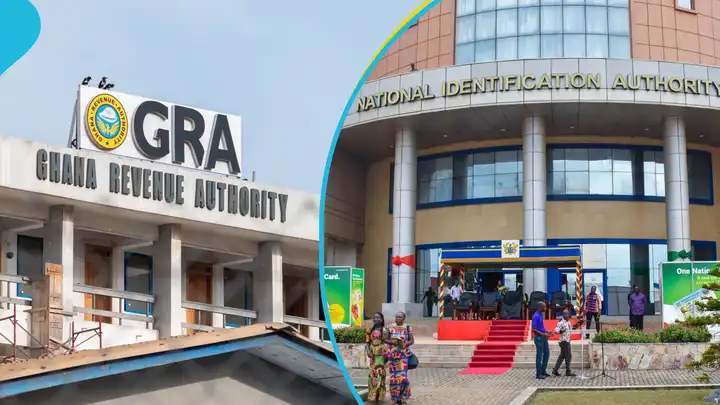The National Identification Authority (NIA) has disconnected the Ghana Revenue Authority (GRA) from its Identity Verification Service (IVS) platform due to an unpaid debt of GH₵376 million.
This drastic measure has left importers and exporters stranded, as they are unable to clear goods at the ports without the verification system. The NIA, facing severe financial constraints, has also requested permission from the Data Protection Commission to delete its data from GRA servers. According to the NIA’s Head of Corporate Affairs, William Ampomah, the authority has issued multiple demand notices to the GRA but has yet to receive payment, severely affecting its operations.
The disconnection has caused significant disruptions at Ghana’s ports, where customs officials rely on the NIA’s system to verify identities for tax and clearance processes. Sampson Asaki Awingobit, Executive Secretary of the Importers and Exporters Association, confirmed that the breakdown has left many businesses unable to access their goods. Meanwhile, the GRA has downplayed the impact, claiming that its operations remain largely unaffected. However, traders and industry stakeholders have expressed frustration over the delays, which could lead to financial losses and supply chain bottlenecks.
The NIA has emphasized that the verification platform requires consistent funding for maintenance and operational efficiency. Williams Ampomah Dallas, the NIA’s Head of Corporate Affairs, revealed that multiple public institutions owe the authority substantial sums, straining its ability to function effectively. He warned that further disconnections could follow if debts remain unpaid. “We are appealing to these institutions to fulfil their financial obligations, or we will have no choice but to deny them services,” he stated. The NIA operates on a semi-commercial basis, relying on service fees to sustain its operations, but delayed payments have severely hampered its financial stability.
Despite the standoff, the GRA has acknowledged the disconnection and stated that discussions are ongoing to resolve the issue. Deputy Commissioner Florence Asante assured the public that the impact on GRA operations has been minimal.
However, the situation highlights broader challenges in inter-agency financial management within Ghana’s public sector. If unresolved, the dispute could further disrupt trade, revenue collection, and digital identity verification processes, underscoring the need for prompt resolution and better financial accountability among state institutions.



